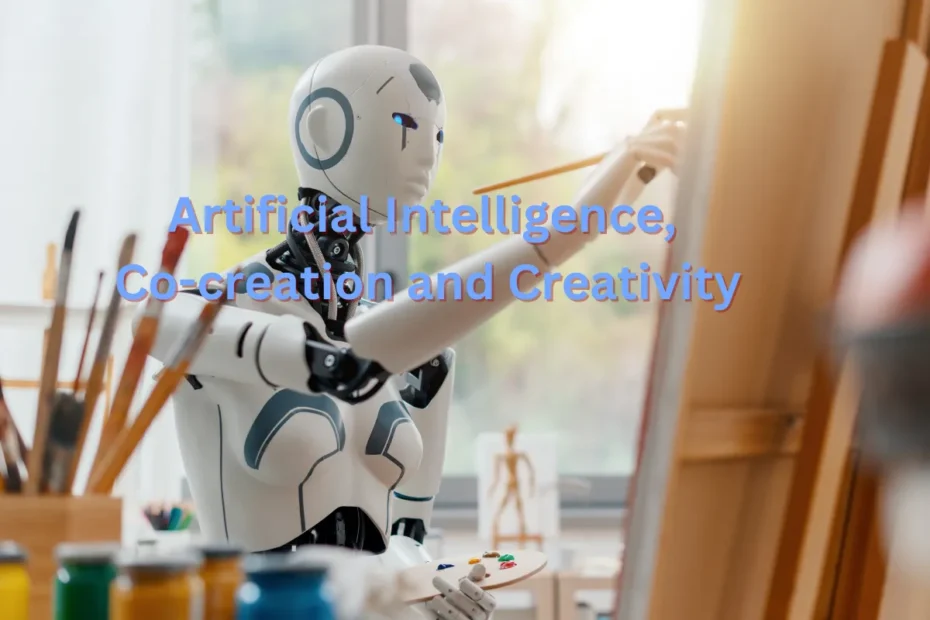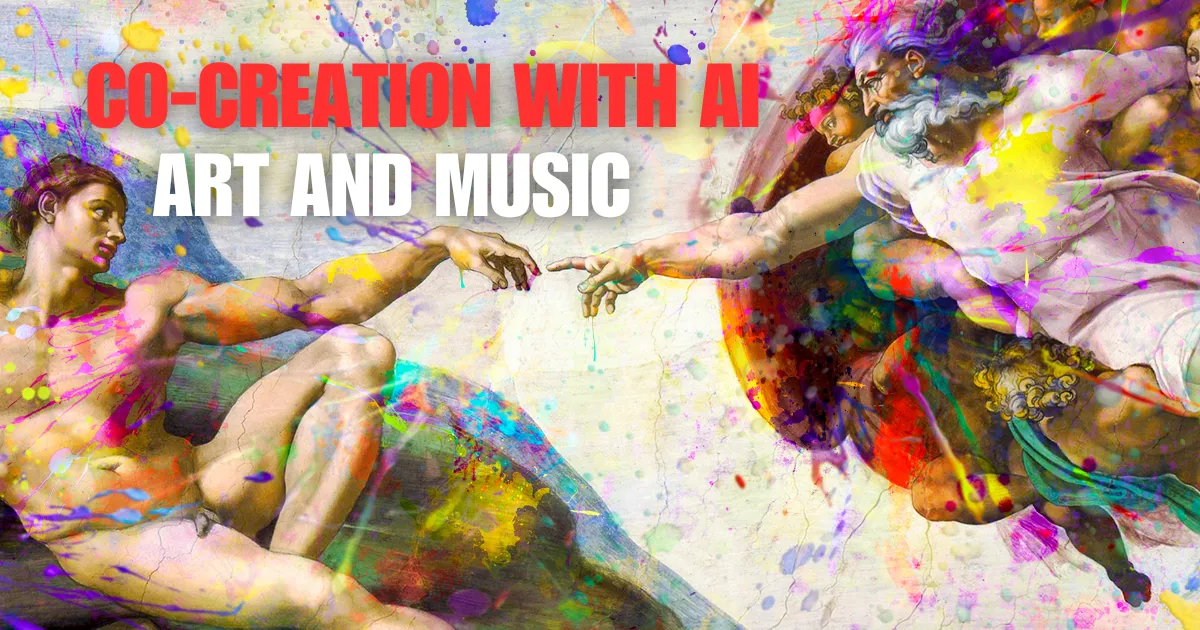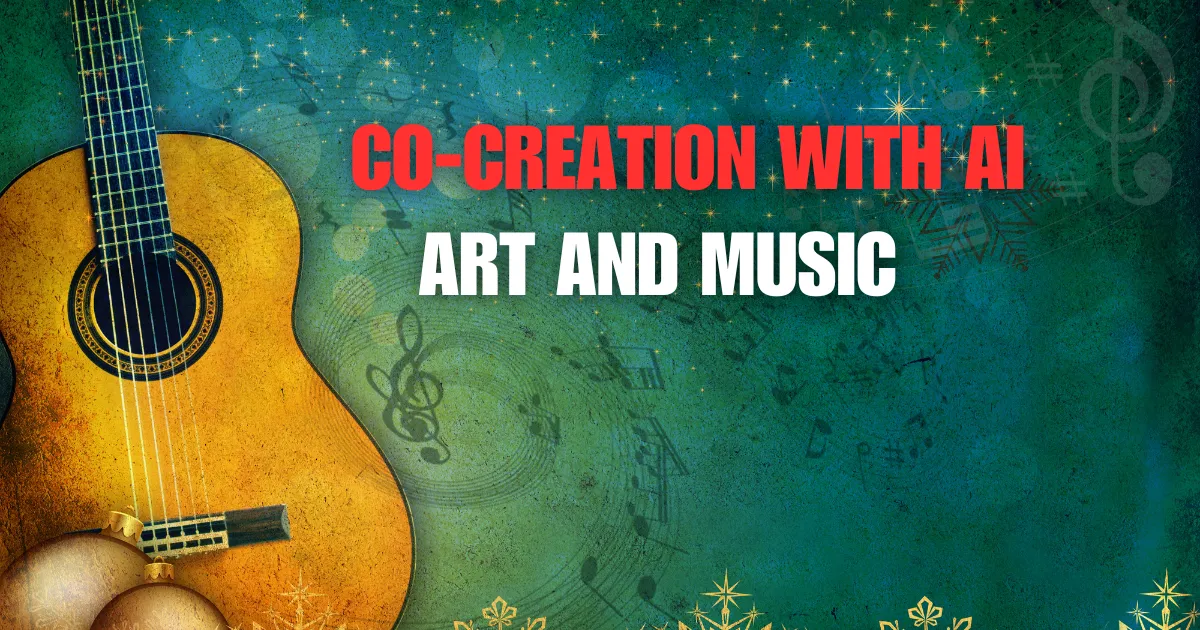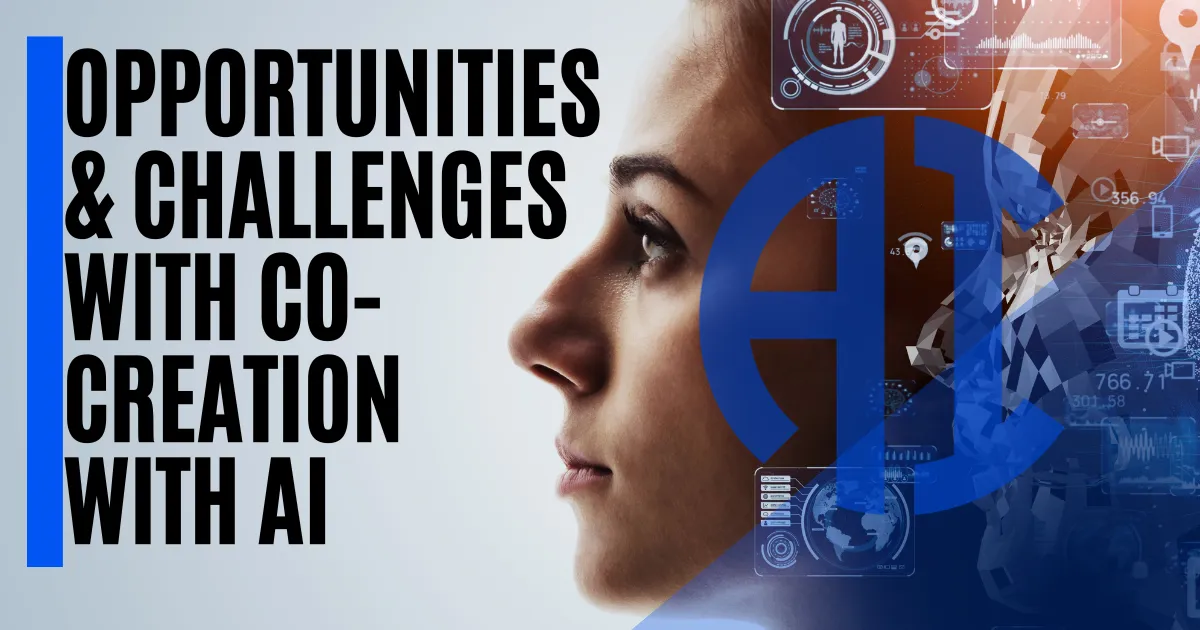Co-creation with AI is a transformative approach that merges the best of human creativity and intuition with artificial intelligence’s computational power and data-processing capabilities. Let’s delve into the subject. (🧠)
Benefits of Co-creation with AI
- Augmented Creativity: AI analyzes vast amounts of data in seconds, offering insights that might be missed by the human mind. Humans can then use these insights to fuel their creative processes.
- Efficiency: AI can handle repetitive and mundane tasks, allowing humans to focus on more complex and creative aspects of a project.
- Error Reduction: AI algorithms, when trained properly, can help reduce errors by identifying inconsistencies or issues that humans might overlook.
- Personalization at Scale: AI can tailor products, services, or content to individual users based on data, something that’s nearly impossible for humans to do manually for large audiences.
- Innovative Solutions: By combining human intuition with AI’s data-driven insights, new and creative solutions to problems can be discovered.
Challenges of Co-creation with AI
Ethical Considerations in Co-creation with AI
1. Bias and Fairness:
- AI systems are only as unbiased as the data on which they are trained. If the training data contains biases, the AI’s output will likely reflect these biases. This is particularly critical in co-creation scenarios where AI-generated content or solutions might perpetuate stereotypes or unfair representations.
- Ethical responsibility is ensuring AI algorithms are trained on diverse, inclusive, and balanced datasets.
2. Intellectual Property and Creativity:
- AI’s role in creative processes raises questions about originality and ownership. Determining the authorship of AI-generated content can be challenging, leading to legal and ethical complexities regarding intellectual property rights.
- There’s a need for clear guidelines and regulations that address the contribution of AI to creative outputs.
3. Transparency and Accountability:
- Ensuring transparency in how AI systems make decisions is crucial, especially in sectors like healthcare or finance, where these decisions can significantly impact human lives.
- Holding humans accountable for AI-generated outcomes is essential to maintain trust and ethical standards.
Over-reliance on AI
1. Loss of Human Skills:
- Over-reliance on AI for tasks and decision-making can lead to declining critical human skills and intuition. Maintaining and valuing human judgment and creativity alongside AI capabilities is essential.
- It is crucial to encourage a collaborative environment in which AI is seen as a tool rather than a replacement for human intelligence.
2. Dependence on Automation:
- Excessive reliance on AI can make individuals and organizations vulnerable to system failures or malfunctions. It’s vital to have contingency plans and retain expertise in manual processes.
Data Privacy and Security
1. Data Handling and Consent:
- AI systems often require large datasets, and how these data are collected, stored, and used raises significant privacy concerns. Adherence to data protection laws and ensuring informed consent for data usage is imperative.
- Implementing robust data security measures to protect sensitive information from breaches is essential.
2. Ethical Use of Personal Data:
- There’s a thin line between personalized content and intrusive use of personal data. A key ethical concern is ensuring that AI systems respect user privacy and do not misuse personal information.
- Establishing and following ethical guidelines for data usage can help maintain user trust and integrity.
Successful Co-creation with AI – Examples: A Deeper Dive
The burgeoning field of artificial intelligence is rapidly transforming various industries, and one of the most exciting developments is the rise of successful co-creation between humans and AI.
This collaborative approach leverages the unique strengths of both parties, resulting in innovations and solutions that surpass what either could achieve alone. Let’s explore some compelling examples:
Art and Music: A Symphony of Human Creativity and AI Ingenuity
Artists and musicians are increasingly embracing AI as a creative partner. AI algorithms can analyze vast datasets of existing artworks or musical compositions, identifying patterns and generating novel outputs based on specific parameters.
For instance, an AI might generate a melodic motif or a harmonic progression, which a musician can refine, expand, and integrate into a complete composition. Similarly, an AI could develop a visual artwork based on a textual description or style preferences, providing artists a starting point for their creative process.
This co-creation fosters a dynamic interplay between human intuition and AI’s ability to explore uncharted creative territories.
Product Design: Transforming Customer Insights into Tangible Innovations
Companies are harnessing the power of AI to analyze customer feedback, social media trends, and market data to co-create new product designs or enhance existing ones. AI algorithms can identify recurring themes, predict consumer preferences, and generate design concepts that align with customer needs.
Human designers can then refine these concepts, ensuring they are aesthetically pleasing, functionally sound, and aligned with brand values. This collaborative approach streamlines the design process, reduces development costs, and increases the likelihood of creating products that resonate with target audiences.
Problem Solving: Augmenting Human Expertise in Complex Domains
In sectors like healthcare, AI is proving to be a valuable partner in problem-solving. AI algorithms can analyze complex datasets, such as medical images, genetic data, and patient records, to identify patterns and propose potential solutions.
Healthcare professionals can then leverage their expertise to validate these solutions, interpret the findings, and develop personalized treatment plans. This co-creation empowers professionals to make more informed decisions, accelerate the pace of discovery, and improve patient outcomes.
The Immense Potential of Responsible Collaboration
In conclusion, co-creation with AI holds immense potential to drive innovation and address complex challenges across various domains. It’s a collaborative approach that, when used responsibly and ethically, can lead to previously unimaginable breakthroughs.
By fostering a symbiotic relationship between human creativity and AI’s analytical capabilities, we can unlock new frontiers of innovation and create a more prosperous and equitable future.
Composing music through AI-powered tools
Discover the power of AI in music composition. Explore how co-creation with AI-powered tools can revolutionize your music-making process.
Utilizing AI for artistic collaboration
Uncover the power of co-creation in the art and music industries, as AI takes center stage. Explore the groundbreaking collaborations and new frontiers being explored with AI technology.
Opportunities & Challenges with Co-creation with AI
Co-creation with AI presents exciting opportunities, but it also comes with various challenges that need to be addressed to harness the full potential of this collaborative approach. Let’s explore these challenges in detail:
Data Dependence:
- AI models thrive on data, and the quality of their output is heavily influenced by the quality of the data. If the data is biased, incomplete, or irrelevant, the AI’s contributions to the co-creation process can be misleading.
- Data privacy and compliance with regulations is paramount, especially when dealing with user-generated content or personal information.
Loss of Human Touch:
- Over-reliance on AI can sometimes result in creations lacking the emotional depth or nuance that only humans can bring.
- There’s a risk of homogenizing creativity if everyone begins to rely on similar AI algorithms for co-creation.
Ethical Concerns:
- The transparency of the AI’s decision-making process is crucial. Stakeholders involved in the co-creation process must understand how the AI reaches its conclusions.
- There are ethical implications, especially in art, journalism, or content creation, where AI-generated outputs can be mistaken for human perspectives.
Integration and Adaptability:
- Incorporating AI into traditional creation processes can be complex and require a change in mindset.
- Organizations and individuals may face resistance or challenges in adapting to new workflows or understanding AI’s intricacies.
Overconfidence in AI Outputs:
- There’s a risk of blindly trusting AI-generated content or solutions without adequately scrutinizing or validating them.
- This can lead to oversights or the propagation of errors.
Skill Gap:
- Effective co-creation requires a certain level of understanding and proficiency in both the domain of creation (e.g., art, product design) and AI.
- There is a need for continuous learning and upskilling, and not everyone may have access to the required resources or training.
Economic Implications:
- As AI takes on more roles in the co-creation process, there are concerns about job displacement or reduced opportunities for human creators.
- Balancing AI efficiency with human employment can be challenging.
Iterative Feedback:
- It can be difficult to get AI to understand and act upon nuanced human feedback. AI might not always “grasp” abstract or subjective concepts, making some iterations in the co-creation process cumbersome.
Addressing these challenges requires a combination of technological advancement, ethical considerations, continuous learning, and fostering a collaborative environment where humans and AI can work in harmony.




It’s incredible how AI is turning what once felt like science fiction into everyday reality. The future isn’t just near—it’s happening now!